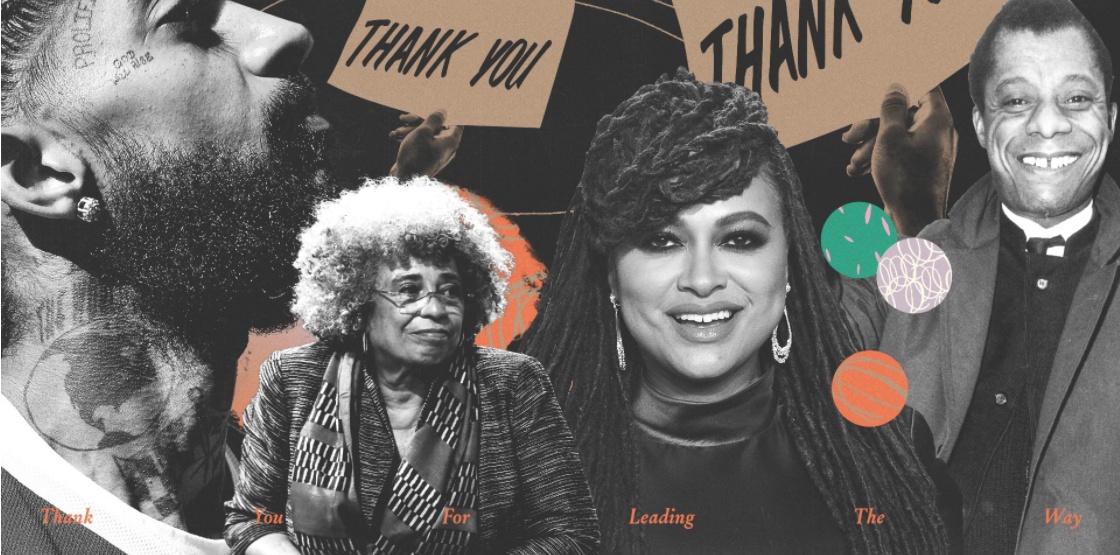
February 4, 2021
Black History Month has to be more than a running list of “Did you know?” fun facts. It has to be more than regurgitated Instagram posts with red, black, and green borders or an opportunity for advertisers and TV stations to break out their dashiki-print art treatments.
Black history is everyone’s history. Just as there has never been humanity without Black people, there is no human history without Black history. This fact should fuel our desire to create space for a true celebration of Black history, one that goes beyond nostalgic remembrances of events from 50, 100, or 400 years ago through rose-colored glasses. The history of man cannot be told though pop quizzes about who invented the stop light or the pacemaker, and Black history has no right being told in this fashion, either.
It’s also important to remember that Dr. Martin Luther King, Jr. didn’t live his life in black and white. His life was lived in color, at a time when the vast majority of Americans looked upon him with distaste while questioning the peacefulness of his rallies, and the American government itself worked to cut down his character. It’s often easier to remember these figures as one-dimensional beings eternally suspended in the amber of their moment, but that can only happen if we fail to understand their full story, particularly if we’re fortunate enough to be around as their story is still being told.
Black history was made last century, last summer, last night. Right now, Black history is being made, always, perpetually fluid, influencing itself and creating new iterations upon itself. Black people being inspired by Black people constitutes Black history. Any person inspired by Black people constitutes Black history.
Complex has covered Black history for almost two full decades, and has done so by organically celebrating Black art in real time. For example, one day Young Thug may be viewed by many through the same black-and-white lens some use when remembering a titan like James Brown, with only those acutely familiar with his work or having lived through his career as it unfolded left to fully comprehend his impact. In some ways, an icon like Jay-Z is already viewed by some in this fashion. I personally consider it a privilege to work at a company dedicated to covering Black history, live, as it’s being made.
To that end, this Black History Month, we chose to celebrate figures—both current and historical—who have inspired us in some significant way. Each day in February, we will feature a “Thank You” letter to a Black person who has made history, penned by a Complex employee or by an artist, influencer, or other individual whom you may recognize. It’s our small way of shining a light on those who made us who we are, and paying homage to both the widely known and smaller-profile giants of Black history. —Maurice Peebles
Angela Davis
Angela Davis, your presence has been one of the most important in my life. I learned about you as a young Black teenager, wanting so badly to have been born into the decade of the Black Power movement. I’m not sure if it was the cadence of your voice or the way you raised your fist in the courtroom during the historical trial where you fought for your freedom—but your strength was always one that felt like a rumbling. A deep, deep rumbling, like the way a volcano rumbles. You always felt otherworldly. And then I met you. We met the first time in Berkeley and I was star-struck, thinking, “I get to meet my hero—Angela Davis.”
I remember opening up to you and crying as I talked to an audience of 1,200 people, describing the ways in which police violence had terrorized my life and my community, and how I was going to dedicate myself to the movement. Then you spoke and you galvanized the audience of 1,200 folks that came to see you and be reminded why we are in this movement. You are a big mentor of mine and I think about all the times that I have asked you ‘How do you keep hope?’ Your answer is always the same: “There is so much to be hopeful for.”
You lay out the many uprisings and revolutions that are happening across the world because you have never just cared about Black Americans. You make the connections between what is happening in Nigeria and what is happening in Los Angeles. You ride for all of us. For that I am grateful.
Thank you, Angela Davis. —Patrisse Cullors
Patrisse Cullors is an artist and author, as well as a co-founder of the Black Lives Matter Global Network.
Ava DuVernay
In a world where Black folk have to make Black Lives Matter a movement because our lives feel meaningless to America, we have to give acclaimed filmmaker Ava DuVernay her props.
As a director, she sees us. She saw the human story behind the “Central Park Five” scandal from the ’80s and detailed how hard it is for Black boys and men in the system so candidly that she named her series When They See Us. She saw Brother Martin and the folks who put shoes to pavement in 1965, walking from Selma to Montgomery, where Black people spoke up for the constitutional right to vote, and turned that momentous occasion into 2014’s Selma. Ava sees the struggle Colin Kaepernick has gone through since he knelt in protest of the Black lives that were taken (and continue to be taken) by police officers and a “justice” system that doesn’t feel built for us.
Colin entrusted Ava to tell his story, a humongous honor from someone who notoriously lets his actions speak for themselves. She also took the prison system to task with 13th, a documentary that highlights just how much the system of slavery is alive in our prison institutions. Ava even saw herself become the first Black woman to direct a film that earned $100 million at the box office with 2018’s A Wrinkle in Time, an ambitious Disney update to a timeless novel that put Storm Reid in the box office conversation.
With America being divided, and history ignoring the contributions of Black people, except for when it can benefit the ruling class, creatives like Ava DuVernay express our pain and our joy. Our stories matter just as much as our lives, and with Ava’s vision, we always look amazing.
Thank you, Ava DuVernay, for putting our people in front of the lens and telling the stories that need to be told now. We need to see them today, and our children’s children need to see them tomorrow. —Khal
James Baldwin
Thank you, James Baldwin, for helping us understand our sanity in an insane world.
I’m almost too embarrassed to admit that my first true introduction to Mr. Baldwin didn’t come in the form of a novel or essay or short story or poem. It didn’t come from learning of his ideals or debates or theories in school or from a parent taking me aside at some younger age to explain what great Black writing looks like. No. My first real introduction to James Arthur Baldwin came far too late in life via the great cultural equalizer of our time—Netflix.
Certainly his story and his work should’ve found its way into my world long before Netflix (or at least while Netflix was still mailing out DVDs), so I only make this confession because my suspicion is that many Americans are having a similar experience. I suspect James Baldwin, like so many other impactful figures throughout history, is someone a considerable number of people recognize by name but not by the details of his deeds. And it brings me far more shame than joy to admit my awakening to this literary colossus and all-time great American mind happened on the same platform where reality show contestants tried to win $100,000 by simply not having sex with one another.
I encourage anyone who has ever heard the name “James Baldwin” but knows little else about the man to watch the Academy Award-nominated documentary I AM NOT YOUR NEGRO, an adaptation of his unfinished manuscript Remember This House.
I encourage anyone—especially after the social awakening of summer 2020—who has ever felt like the entire game is rigged, has ever taken note of the American penchant for casual cruelty, has ever felt confused and confined by the paltry expectations for Black people in this country to consume an essay, interview, or poem from this incredible man.
I’m thanking James Baldwin because his words gave clarity to thoughts and frustrations I’d held for years. His explanations and observations continue to act as prescription lenses in these increasingly blurry iterations of America, and serve as proof that while We are indeed living in a madhouse, it is not We who are mad.
For that wisdom and perspective I am forever grateful. Thank you, Mr. Baldwin. —Maurice Peebles
Sheila Johnson
These last few years have been the most formative of my career and, frankly, my life. From negotiating a new collective bargaining agreement as WNBPA president to dedicating an entire season to Black Lives Matter and Say Her Name, I’ve learned so much about myself, this league, and the phenomenal women empowering our world—phenomenal women like Sheila Johnson. For this, Sheila, I thank you.
You are the only Black woman to own stakes in three professional sports teams, including the WNBA’s Washington Mystics, but your representation and contribution to history, culture, and change have not ended there. In fact, your contribution started well before that. In co-founding Black Entertainment Television, you defined, on your own terms, what it means to be self-made. As a pillar of Black American culture, BET birthed, nurtured, and reared Black stories and narratives for Black people by Black people in a country and time desperate for perspective, representation, and empowerment. For this, we thank you.
You’ve shattered glass ceilings, broken barriers, and left open doors that I have now had the opportunity to walk through. Success and accomplishment aside, in owning up to your worth, you’ve unyieldingly amplified the value of the Black woman and advocated for her to take up space, and unapologetically so. You’ve proven to history that a young girl seeking equal education in the depths of segregation can manifest self-made generational wealth and influence in the same lifetime. Against many orchestrated odds, your grace and resilience permeate your legacy. And for this, Sheila, the world thanks you. —Nneka Ogwumike
Share This Article
